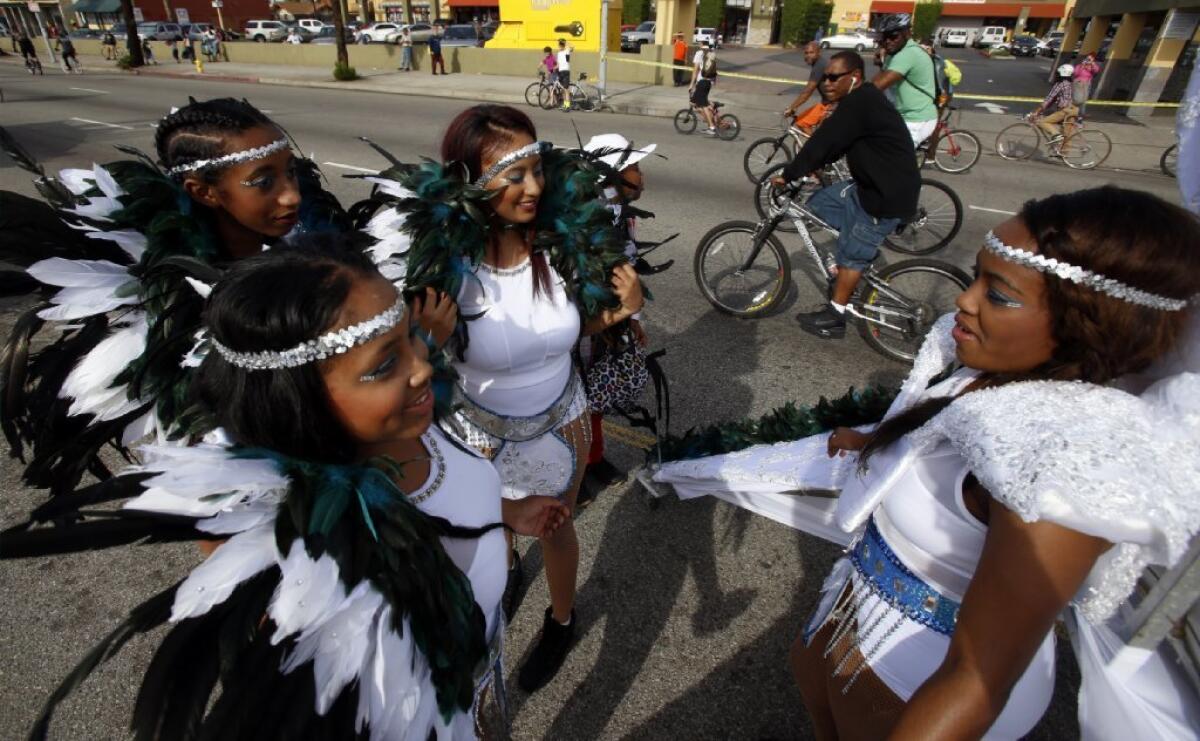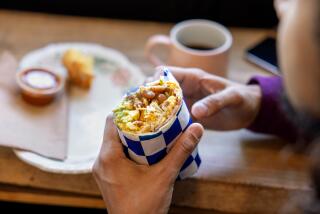Donor provides $400,000 to CicLAvia street festival

- Share via
An anonymous donor has contributed $400,000 to Los Angeles’ increasingly popular CicLAvia bike festival to help keep the periodic event going next year, organizers said Sunday.
The announcement was made as the event, in its 11th incarnation, took place for the first time in South Los Angeles, on a six-mile stretch along Martin Luther King Jr. Boulevard extending from Leimert Park to Central Avenue, south of downtown. Streets along the route are closed to motorized vehicles.
The nonprofit behind CicLAvia spends about $2 million a year to stage its events, said spokesman Robert Gard. Four are currently planned for next year: in the San Fernando Valley, Pasadena, Culver City/Venice and downtown L.A.
Previous CicLAvia routes have snaked through downtown, East Los Angeles, the Westside and along Wilshire Boulevard. The festival is held at different times throughout the year.
The event is modeled after the “open streets” festival in Bogota, Colombia, which began nearly 40 years ago and uses a fixed route every Sunday. That event’s founder, Jaime Ortiz, was among the speakers during a Sunday morning gathering of dignitaries and guests at Jazz Park, which is along the route.
Other speakers included L.A. Mayor Eric Garcetti and City Councilman Curren Price.
The route, closed to cars between 9 a.m. and 3 p.m., was featuring activities at “hubs” along the way, including Leimert Park, Exposition Park, Jazz Park and Central Avenue near Washington Boulevard. At these assembling places, there were to be food trucks, live music and farmers markets.
Landmarks along the route include the former Dunbar Hotel, where the first national NAACP convention was held and where music greats such as Duke Ellington, Billie Holiday, Louis Armstrong and Ella Fitzgerald performed. It is now used for senior housing. The route also passes by the museums in Exposition Park.
Although the area is rich in history — and economically vibrant in places — some of the communities along the route are among the most economically depressed in the city. The route cuts through the traditional African American community, although a majority of residents are now Latino.
The cooler weather predicted for Sunday may encourage more bicyclists, walkers and skateboarders to participate, compared with the hot October day when the car-free rolling street party was last held, organizers said. An estimated 40,000 to 50,000 took part on that occasion.
Twitter: @howardblume
More to Read
Sign up for Essential California
The most important California stories and recommendations in your inbox every morning.
You may occasionally receive promotional content from the Los Angeles Times.










